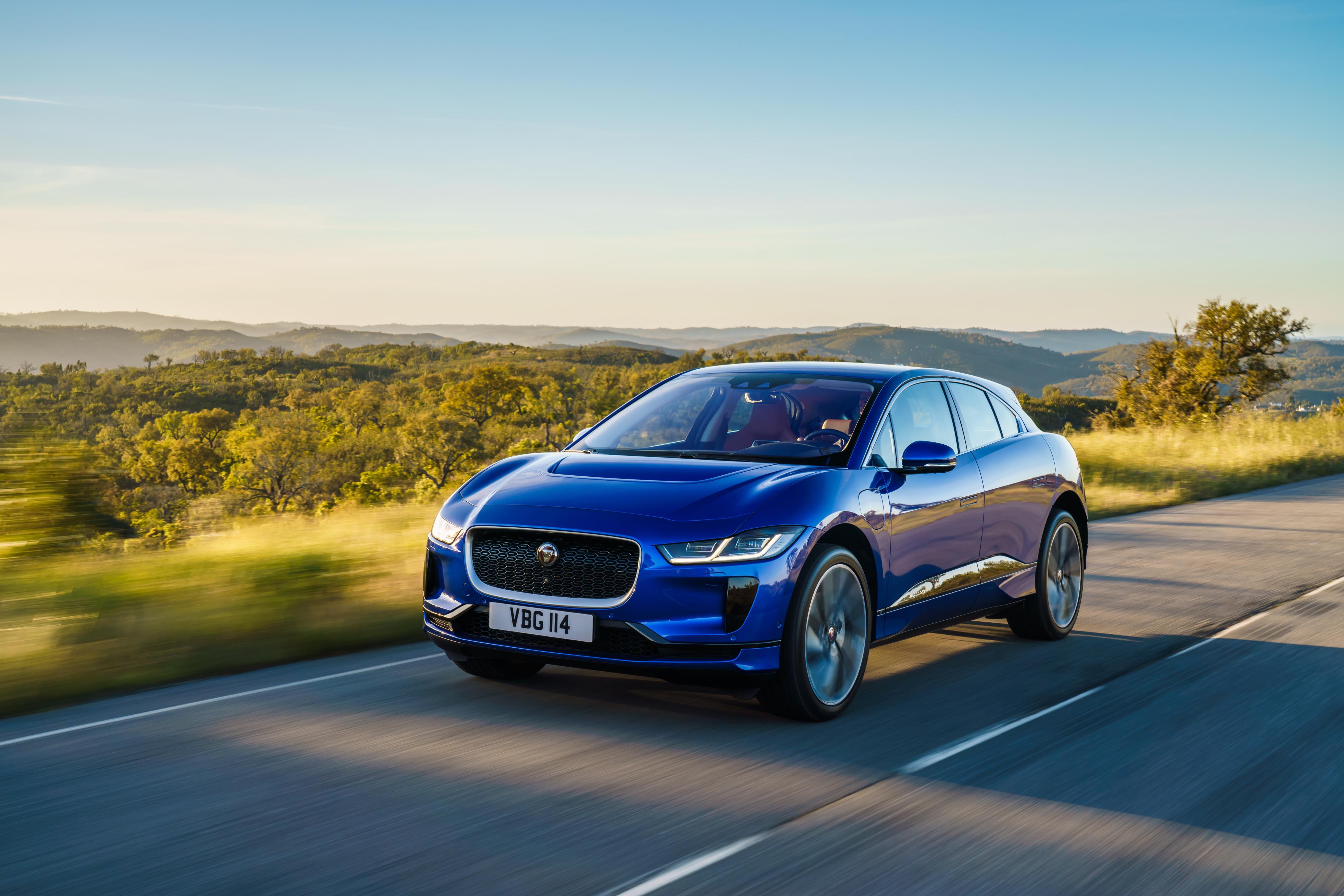What will electric cars sound like now audible warnings are mandatory?
New EU law aims to ease concerns that quiet EVs put pedestrians at risk

A free daily email with the biggest news stories of the day – and the best features from TheWeek.com
You are now subscribed
Your newsletter sign-up was successful
Electric cars will be making even more of an impact from today as carmakers are now required by law to install pedestrian warning sounds.
The new rules, introduced by the European Union and which come into force today, will force manufacturers to fit an “Acoustic Vehicle Alerting System” (AVAS) on electric, hybrid and plug-in hybrids to warn pedestrians and cyclists that the otherwise silent vehicles are approaching, Auto Express reports.
When a car is running on electric power alone, a noise will be emitted at a speeds up to 12mph, the motoring magazine says, and when the vehicle is reversing.
The Week
Escape your echo chamber. Get the facts behind the news, plus analysis from multiple perspectives.

Sign up for The Week's Free Newsletters
From our morning news briefing to a weekly Good News Newsletter, get the best of The Week delivered directly to your inbox.
From our morning news briefing to a weekly Good News Newsletter, get the best of The Week delivered directly to your inbox.
The new law means that all electrified vehicles produced from 1 July must be equipped with an AVAS. From July 2021, every new EV registered must be equipped with the warning systems.
Why have the sounds been introduced?
As the BBC reports, the mandatory warning sounds have been introduced to ease concerns that electrified vehicles are “too quiet” and could be “putting pedestrians at risk because they cannot be heard as they approach”.
The law has been welcomed by the Guide Dogs charity, which raised concerns about it being difficult to hear electrified vehicles approaching, the broadcaster adds. However, the charity argues that EVs should emit a sound at all speeds.
A free daily email with the biggest news stories of the day – and the best features from TheWeek.com
Meanwhile, the Department for Transport’s roads minister, Michael Ellis, said the Government “understands the concerns of the visually impaired about the possible hazards posed by quiet electric vehicles.
“This new requirement will give pedestrians added confidence when crossing the road,” he said.
What will warnings systems sound like?
Carmakers will mostly be given free rein over what sounds their vehicles can produce, although there are some regulations that they must abide by.
The warning systems must emit a sound between 56 and 75 decibels, depending on the power-to-weight ratio of the car, according to Auto Express. It means that heavier electric cars will emit a sound akin to a combustion-engined vehicle travelling at 65mph that is 25 feet away.
The sounds must also “be easily indicative of vehicle behaviour” and change in frequency depending on the speed of the car, the magazine says. The rules also allow companies to adapt their EVs to sound like combustion-engined cars.
A number of carmakers have already released vehicles with noise generators.

The Jaguar I-Pace, for instance, uses a futuristic synthesised sound that’s emitted from a single speaker tucked behind the front grille.
During testing, the company used a sound akin to a UFO, though the noise was ultimately scrapped as pedestrians “kept looking up when they heard the noise”, says CNet.
-
 Why is the Trump administration talking about ‘Western civilization’?
Why is the Trump administration talking about ‘Western civilization’?Talking Points Rubio says Europe, US bonded by religion and ancestry
-
 Quentin Deranque: a student’s death energizes the French far right
Quentin Deranque: a student’s death energizes the French far rightIN THE SPOTLIGHT Reactions to the violent killing of an ultraconservative activist offer a glimpse at the culture wars roiling France ahead of next year’s elections
-
 Secured vs. unsecured loans: how do they differ and which is better?
Secured vs. unsecured loans: how do they differ and which is better?the explainer They are distinguished by the level of risk and the inclusion of collateral
-
 How will Ford reinvent EV manufacturing to compete with China?
How will Ford reinvent EV manufacturing to compete with China?Today's Big Question Henry Ford's assembly line system is being replaced
-
 Why Bezos' new pickup could be a 'wrecking ball' in EV industry
Why Bezos' new pickup could be a 'wrecking ball' in EV industryToday's Big Question Slate Auto's no-frills approach is a 'potential Tesla killer'
-
 Why the UK phone signal is so poor
Why the UK phone signal is so poorUnder The Radar Having trouble connecting? A lack of investment, planning rules and even your home could be to blame
-
 Gen Z doesn't want cars
Gen Z doesn't want carsUnder the Radar Olivia Rodrigo may have been excited to get her driver's license, but many young people are less enthused by car culture
-
 Apple kills its secret electric car project
Apple kills its secret electric car projectSpeed Read Many of the people from Project Titan are being reassigned to work on generative AI
-
 Detroit debuts America's first wireless charging road for electric vehicles
Detroit debuts America's first wireless charging road for electric vehiclesunder the radar The Motor City is trying to stay at the forefront of automotive innovation
-
 LK-99: the room-temperature superconductor discovery causing a stir
LK-99: the room-temperature superconductor discovery causing a stirfeature Scientific community sceptical of ‘magic material that would revolutionise our world’
-
 EU regulators fine Meta a record-breaking $1.3B for data privacy violations
EU regulators fine Meta a record-breaking $1.3B for data privacy violationsSpeed Read